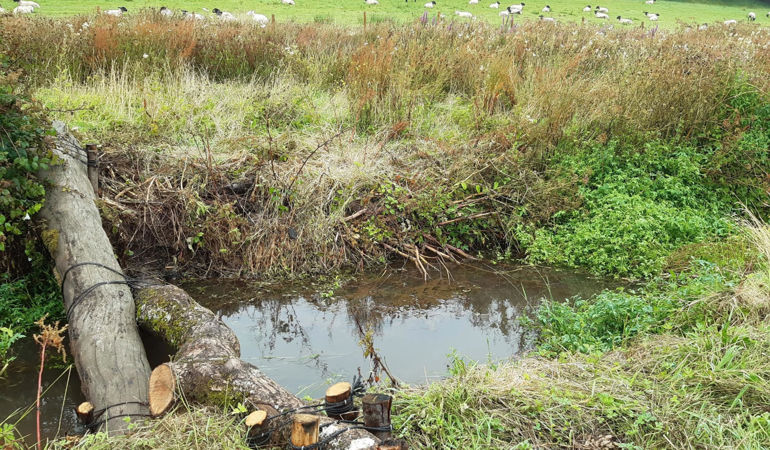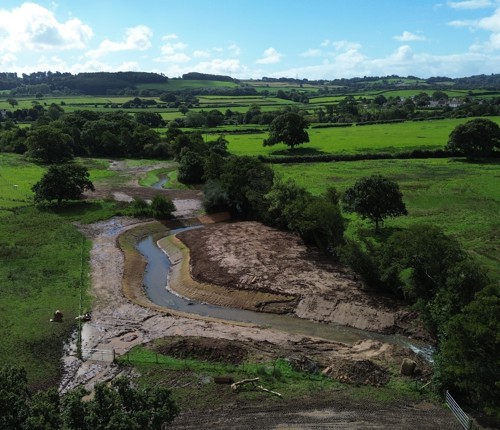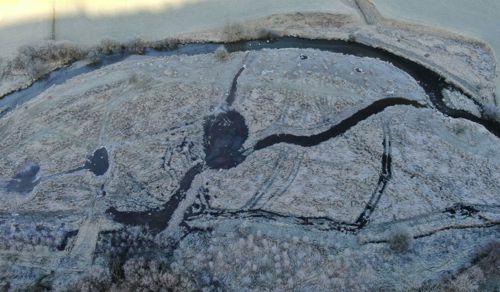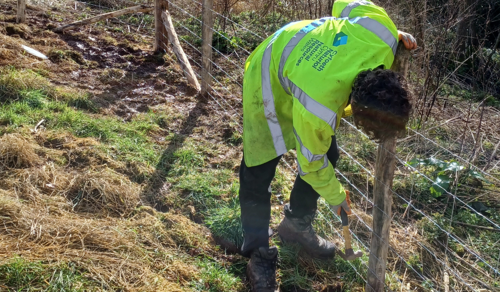World Water Day 2025: Celebrating a year of projects to improve the health of Wales’s water and wildlife

The health of our rivers, streams, lakes, groundwaters and seas is under more pressure than ever, impacting the plants and wildlife that depend on them, and communities who live around them.
In new, interim data published last week, 40% of Wales’s waterbodies are meeting water quality standards. Amongst the reasons for failures are low fish populations and presence of chemicals and other pollutants.
In recent years, we have seen action at scale by ourselves as environmental regulators, Government, industries and community groups to tackle some of the key challenges facing our waters – including climate change, pollution and declining wildlife.
Our Water Capital Programme is funded by the Welsh Government, and is delivering interventions which are helping to improve the health of our rivers. Projects are aimed at reducing pollution, restoring habitat for wildlife and improving the resilience of our waters against the threats of climate change.
Today (22nd March 2025), we’re celebrating World Water Day by looking back at some of the projects delivered through the Water Capital Programme this financial year, and the benefits they have brought to wildlife and communities.
Restoring natural river processes on the Nant Dowlais, Vale of Glamorgan

A major river restoration project has transformed 750m of the Nant Dowlais, enhancing habitats for salmon, eels, and otters.
The river had historically been straightened by human activity, but new meanders have been introduced to improve sediment movement and restore natural river functions. This will provide better habitat to support fish populations and also strengthen the river’s connection with its natural floodplain.
Helping to bring Freshwater Pearl Mussels back from the brink

Last Autumn we released 120 hatchery-reared freshwater pearl mussels into a river in Gwynedd to help revive this critically endangered species.
Prior to their release, over 1000 tonnes of boulders, cobbles and fresh gravel was carefully re-introduced into the river to increase the habitat needed for the pearl mussels to thrive.
Introducing the mussels into a natural river environment marks a crucial step in securing their survival. Long-term monitoring and additional ‘ark’ sites are being developed to expand these conservation efforts.
Creating a river restoration demonstration site in the Pembroke River

We’ve introduced large, woody material into a 200m stretch of the Pembroke River to help encourage new meanders and ‘re-wiggle’ the river to restore its ecological functions.
570m of fencing has been installed to keep livestock out of the river to reduce soil erosion and improve water quality, while over 600 trees have been planted to create a buffer zone between productive farmland and the river.
The project, which was delivered in collaboration with the landowner, serves as a model for future restoration in other areas.
Upper Conwy Floodplain Restoration

Our ongoing work in the Upper Conwy catchment is helping to reduce flood risk as well as boosting nature.
We have removed artificial embankments along the Afon Machno, allowing the river to reconnect with its natural floodplain.
Scrapes and channels have also been dug on the floodplain to restore historic flow patterns, enabling further water storage.
This nature-based solution slows floodwaters, reducing risks downstream while creating new wetland habitats for wildlife.
Encouraging sustainable land practices in central Monmouthshire

We are working with farmers to implement land management strategies that enhance soil health, reduce erosion, and improve water quality in the Rivers Usk and Wye.
By planting 2,500 trees, installing fencing, and restoring hedgerows, the initiative supports biodiversity and long-term agricultural sustainability.
Our long term commitment to improve water quality
The projects delivered through our Water Capital Programme sit alongside the day to day work of our teams in regulating industries, such as the water sector, undertaking compliance checks against agricultural regulations and responding to many of the over 6000 reports of pollution we receive each year. They complement our large-scale, flagship projects such as Four Rivers for LIFE and the LIFE Dee River.
Improving water quality and the health of Wales’s rivers remains one of NRW’s top priorities.
This coming financial year, the Welsh Government is providing £16m funding to our Water Capital Programme for additional projects which will help fight back against the climate and nature emergencies.
